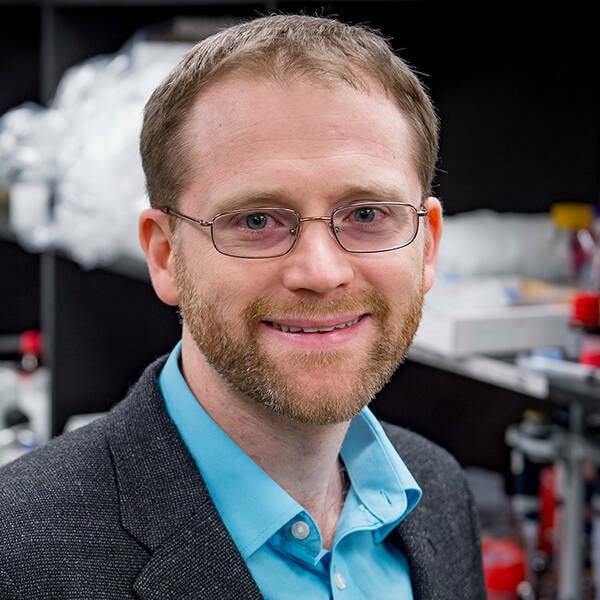
Jeremiah Zartman, Associate Professor, Department of Chemical and Biomolecular Engineering; Concurrent Associate Professor, Department of Biological Sciences; Associate Professor, Bioengineering Graduate Program, University of Notre Dame
"Reverse engineering morphogenesis through the integration of quantitative experiments and multi-scale computational modeling"
Abstract:
Predicting how an organ’s size and shape emerge from complex biomolecular interactions remains one of the most significant challenges in systems biology and tissue engineering. Our research integrates experimental and computational approaches to elucidate the underlying principles of morphogenesis. To do so, we use the larval wing disc of the fruit fly as a powerful model system for discovering the mechanisms regulating a growing organ’s shape and size. In the first part of the talk, I describe the formulation and experimental validation of a multi-scale computational model that has generated new mechanistic insights into the control logic of morphogenesis. Using tools that create spatially defined perturbations to growth or mechanotransduction pathways, we demonstrated that increasing cell proliferation through different growth-promoting pathways leads to distinct outcomes. For example, increased insulin signaling enhances the tissue’s basal curvature while stimulating growth through Bone morphogenetic protein (BMP/Dpp) signaling, or elevated Myc expression has the opposite effect and flattens the central tissue region. These variations in outcomes arise from differences in how each growth pathway regulates contractility, cell-ECM adhesion, and ECM stiffness. In the second part of the seminar, I discuss efforts to reverse-engineer how the mechanosensitive ion channel Piezo impacts cellular processes in multicellular systems. Here, we discovered that Piezo promotes robustness in regulating epithelial topology and is necessary for maintaining precision in organ size control. Our interdisciplinary work underscores a fundamental strategy of orchestrating tissue morphogenesis through the balanced interplay of growth and cell mechanics. This seminar explores organ growth and morphogenesis to identify new fundamental principles that impact developmental biology, tissue engineering, and regenerative medicine.
Bio:
Dr. Jeremiah Zartman is an Associate Professor in Chemical and Biomolecular Engineering at the University of Notre Dame. He also holds a concurrent position in the Biological Sciences department. He serves on the leadership team as a Co-PI of the NSF-funded Biology Integration Institute EMBRIO and as a review editor of Biophysical Journal. Dr. Zartman received his Bachelor’s degree from the University of Colorado at Boulder with a dual major in Chemical Engineering and Engineering Physics in 2004. In 2009, he obtained his Ph.D. in Chemical and Biomolecular Engineering under the supervision of Prof. Stanislav Shvartsman at Princeton University as a Princeton Hertz Fellow. From 2009 to 2011, he worked as a post-doctoral researcher in the lab of Prof. Konrad Basler, University of Zurich, in Molecular Life Sciences as an EMBO Long-term Post-doctoral Fellow. Dr. Zartman has led a research group at the University of Notre Dame since 2012, received an NSF CAREER award in 2016, and was selected as BMES CMBE Rising Star in 2018. His research team focuses on integrating computational and experimental approaches to engineer multicellular systems and developing advanced in vivo screening approaches for target discovery in cancer and regenerative medicine.